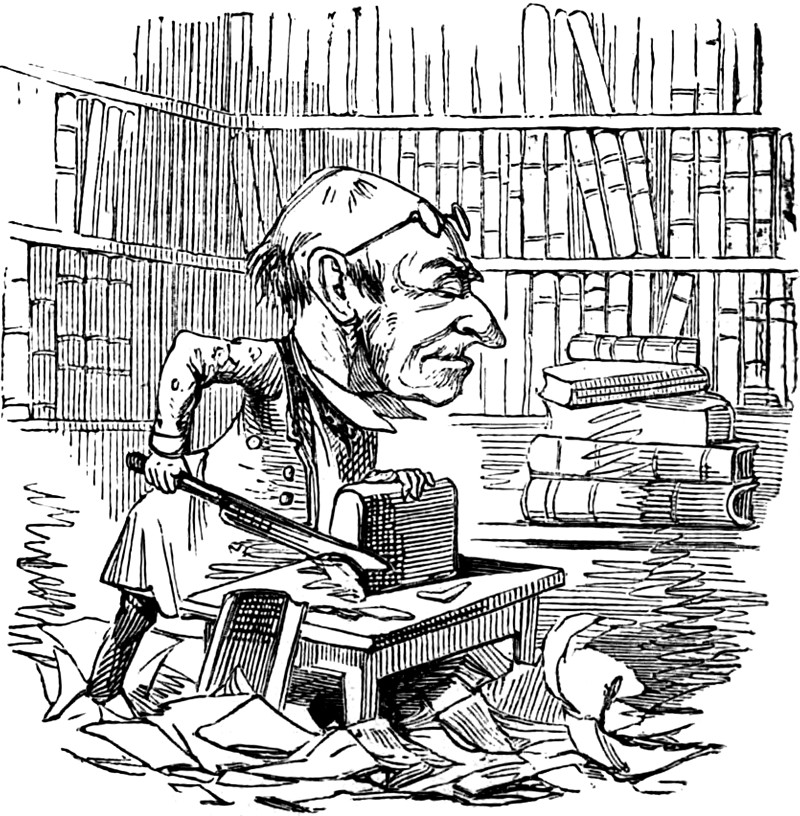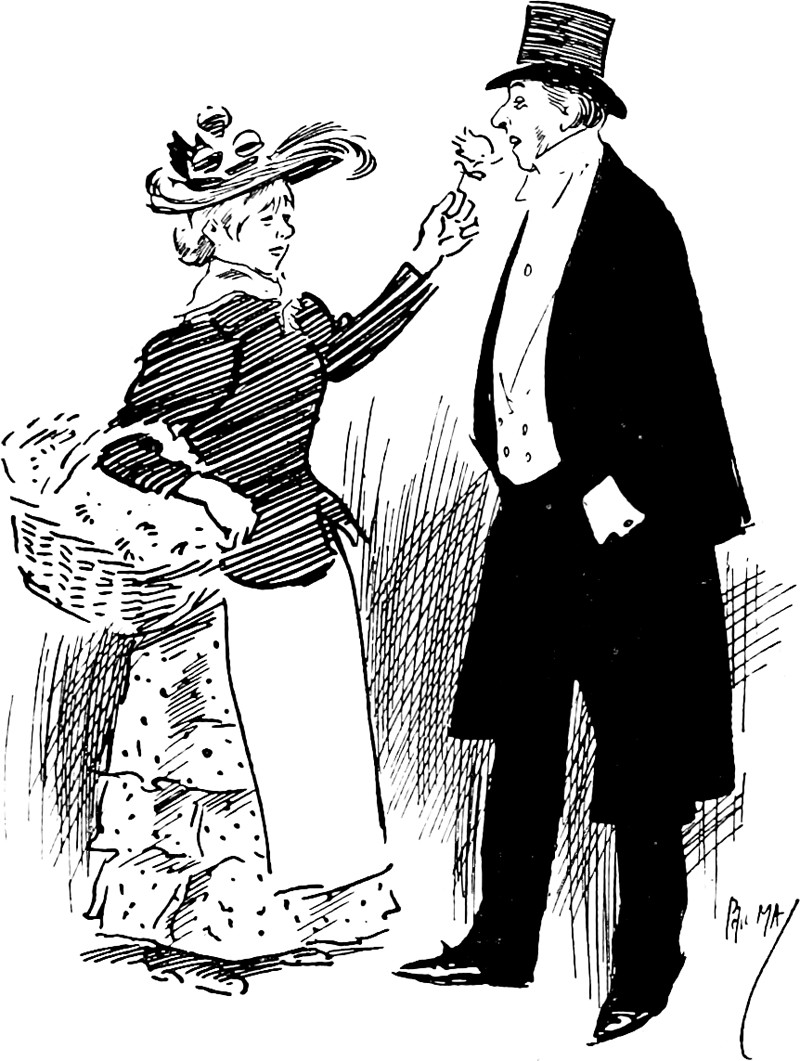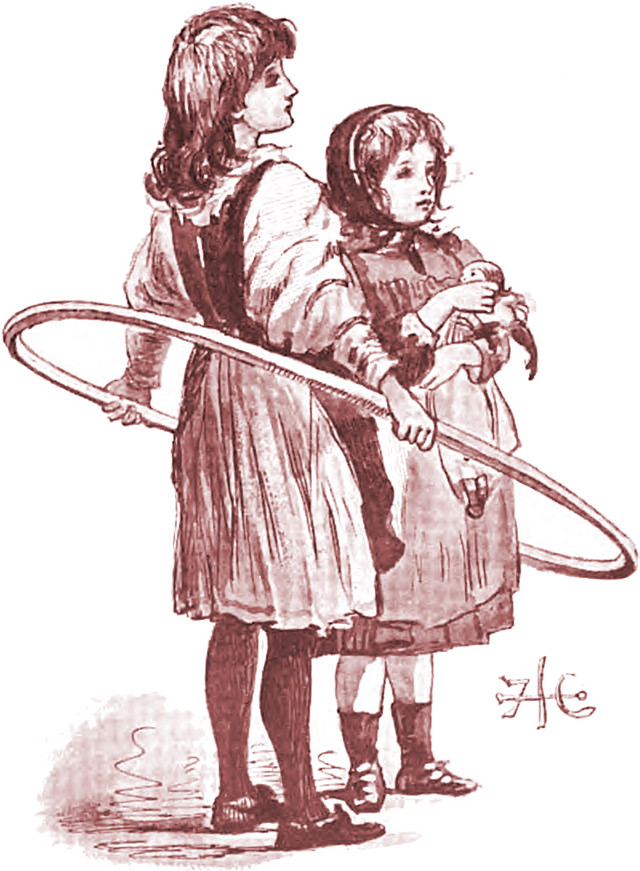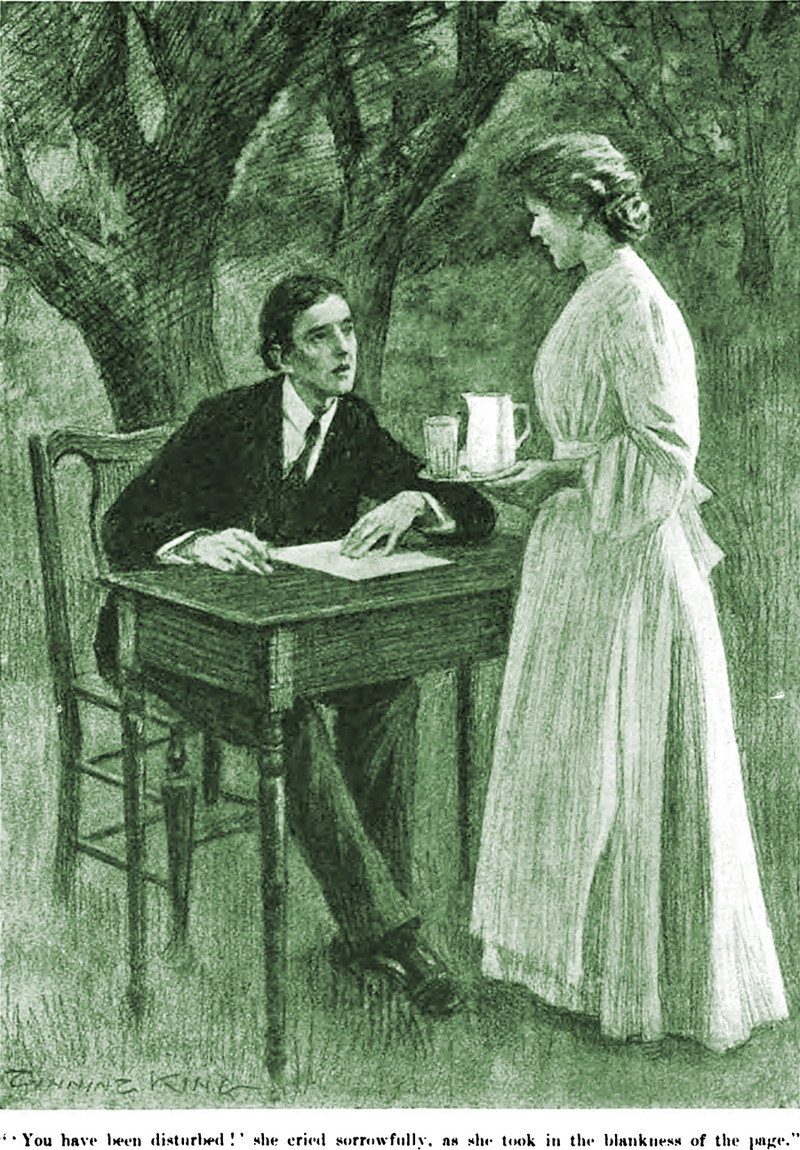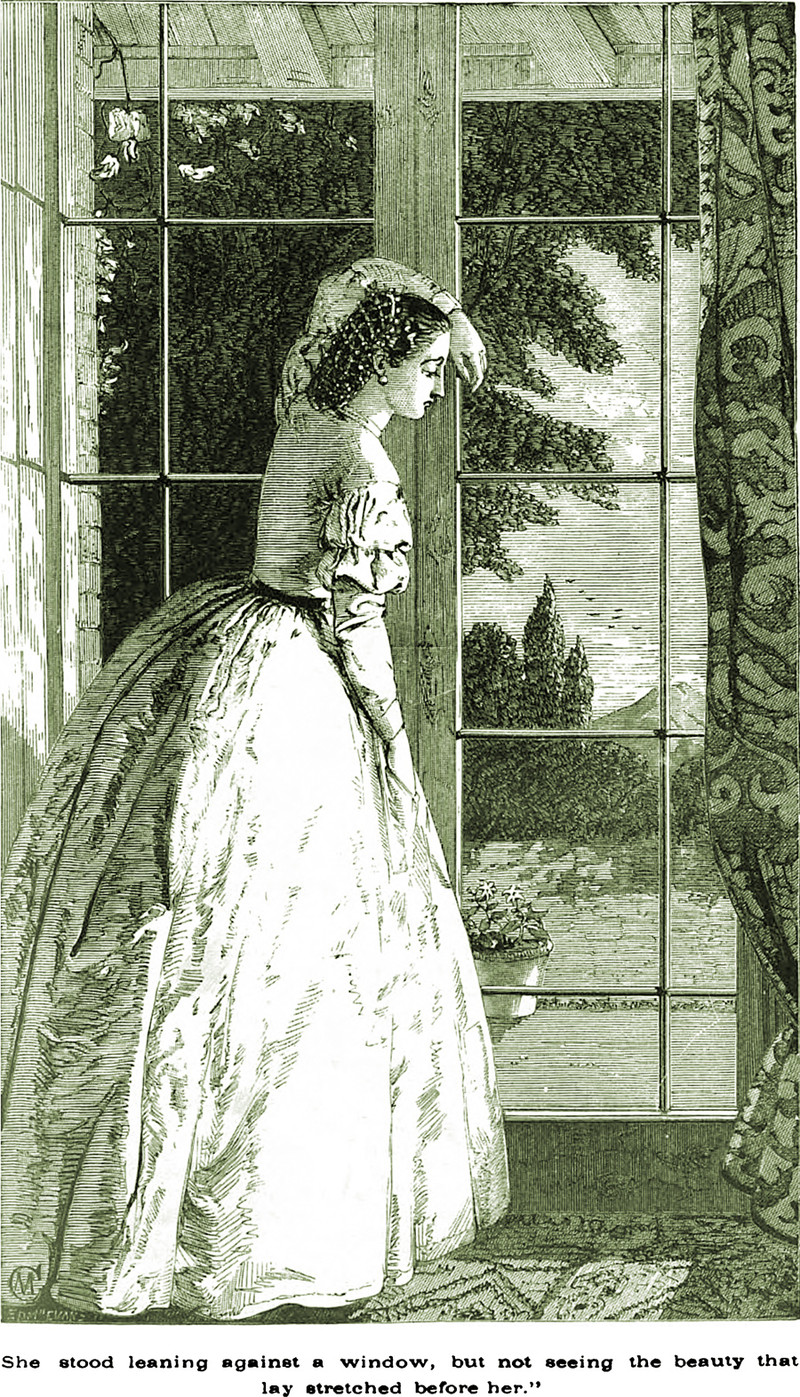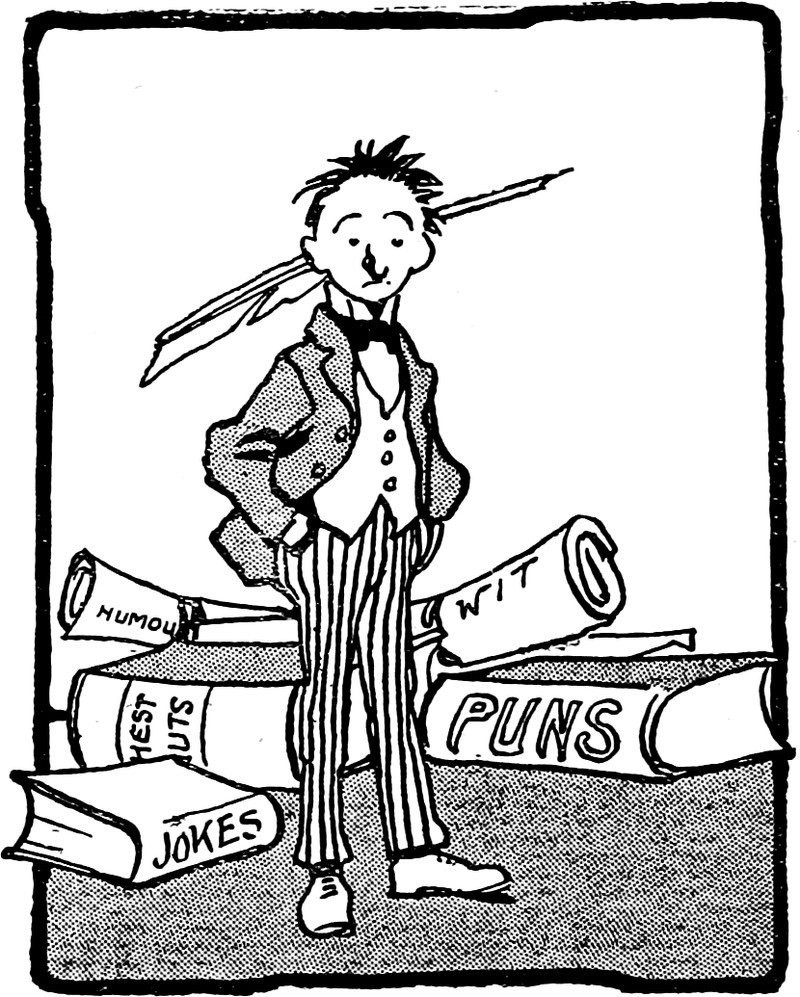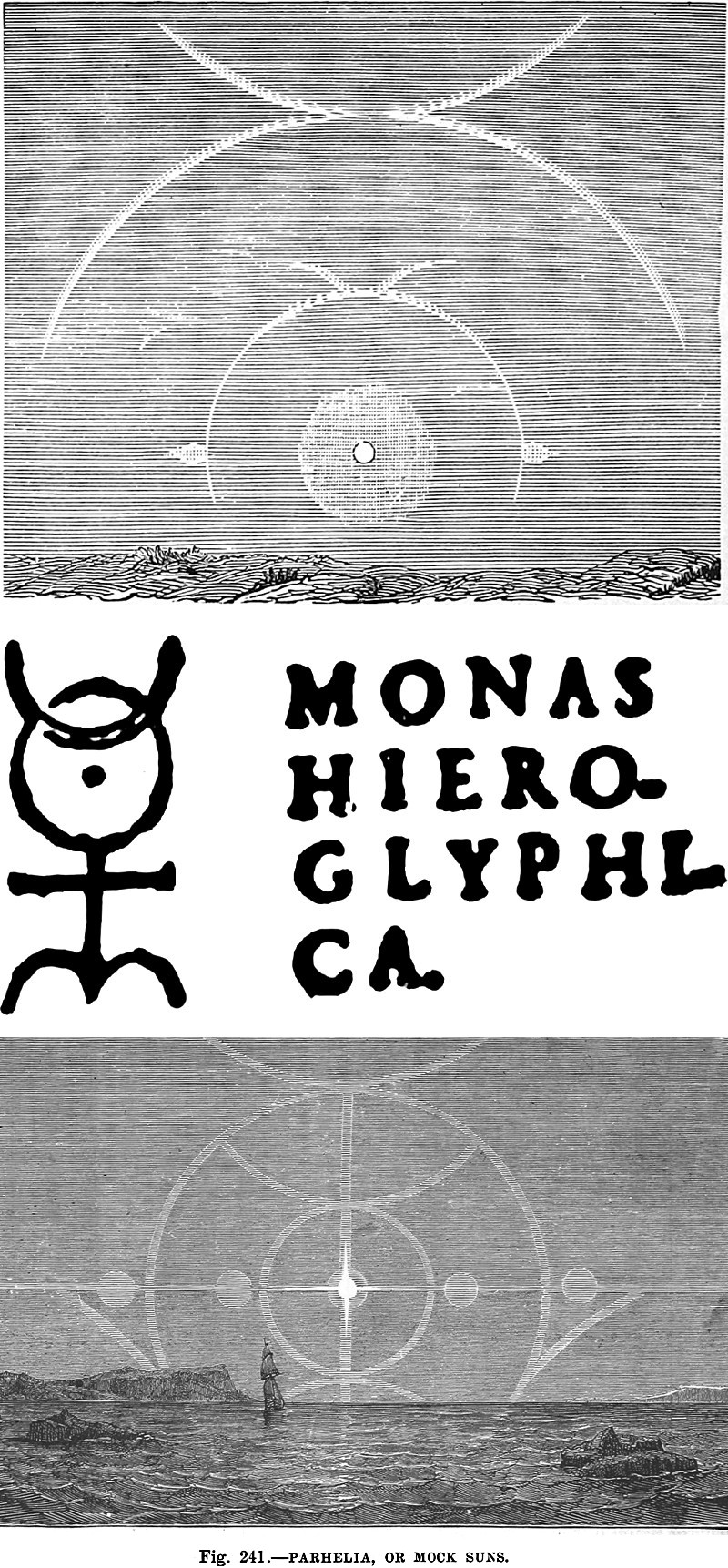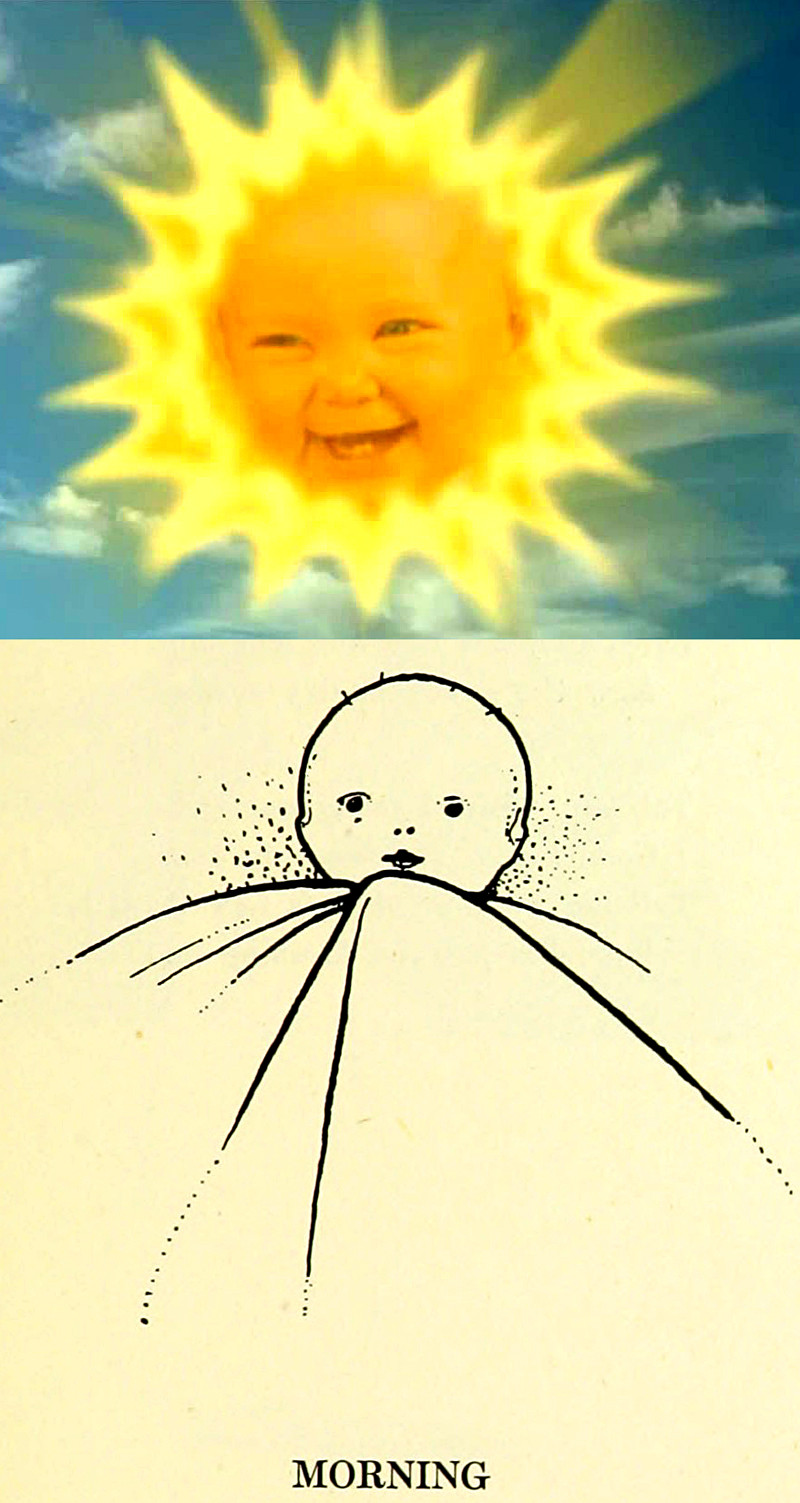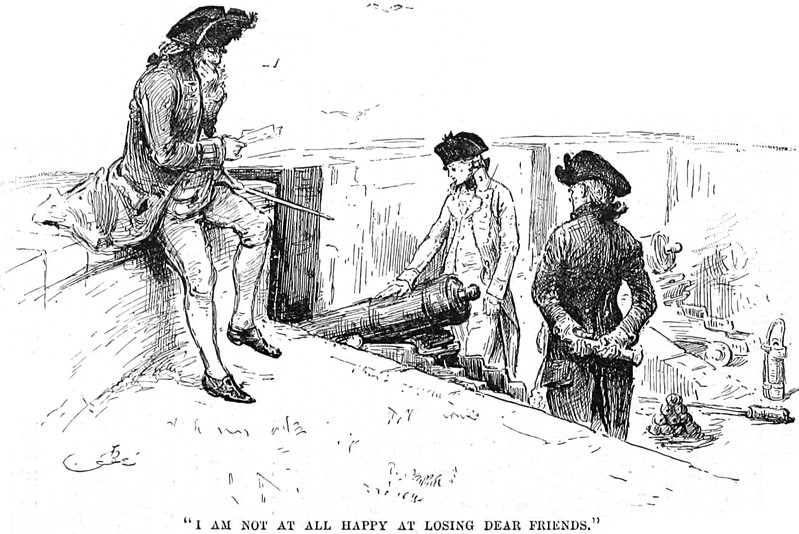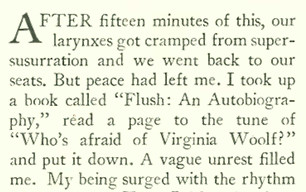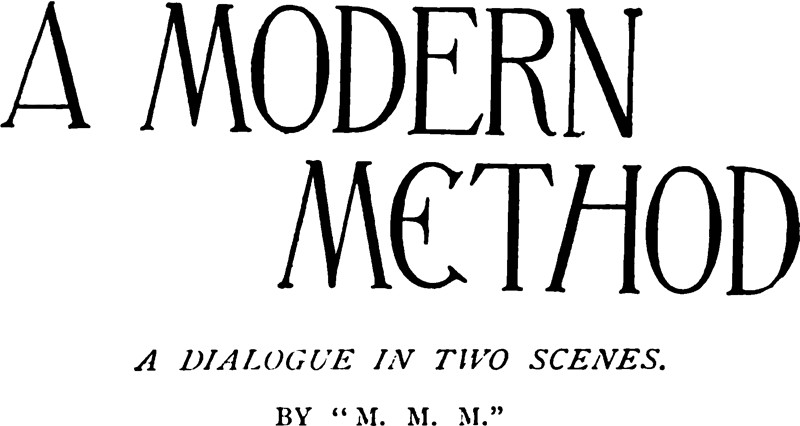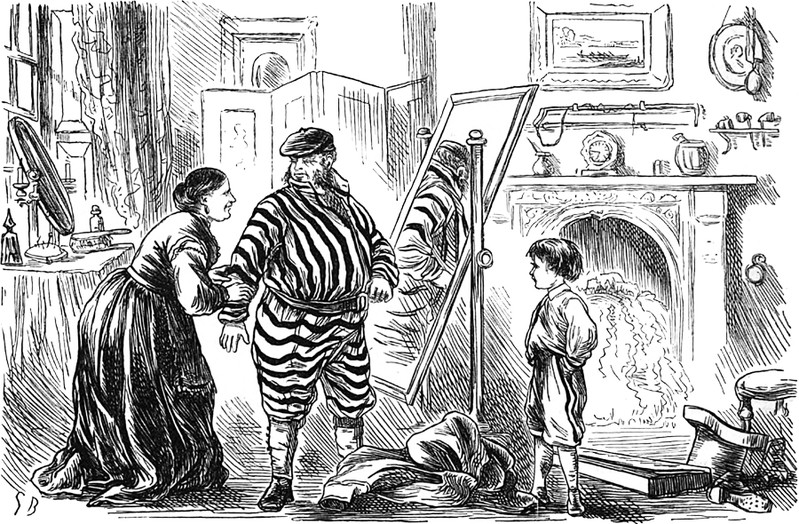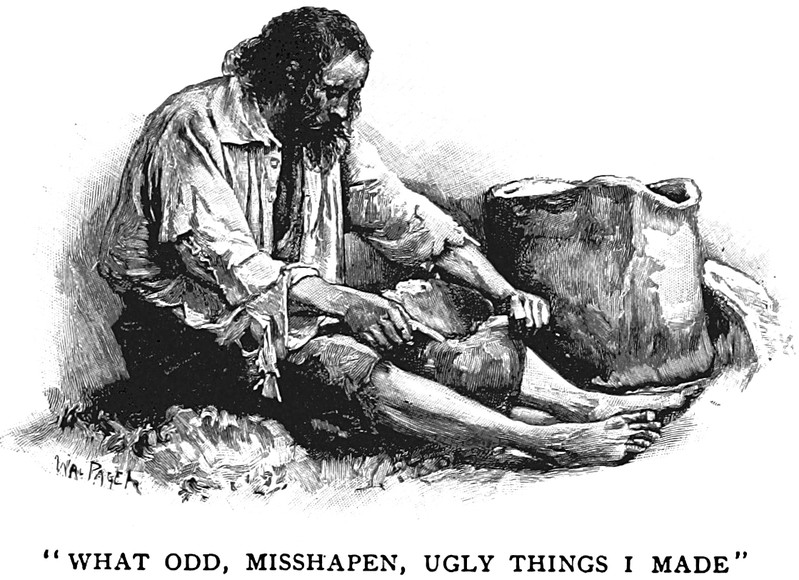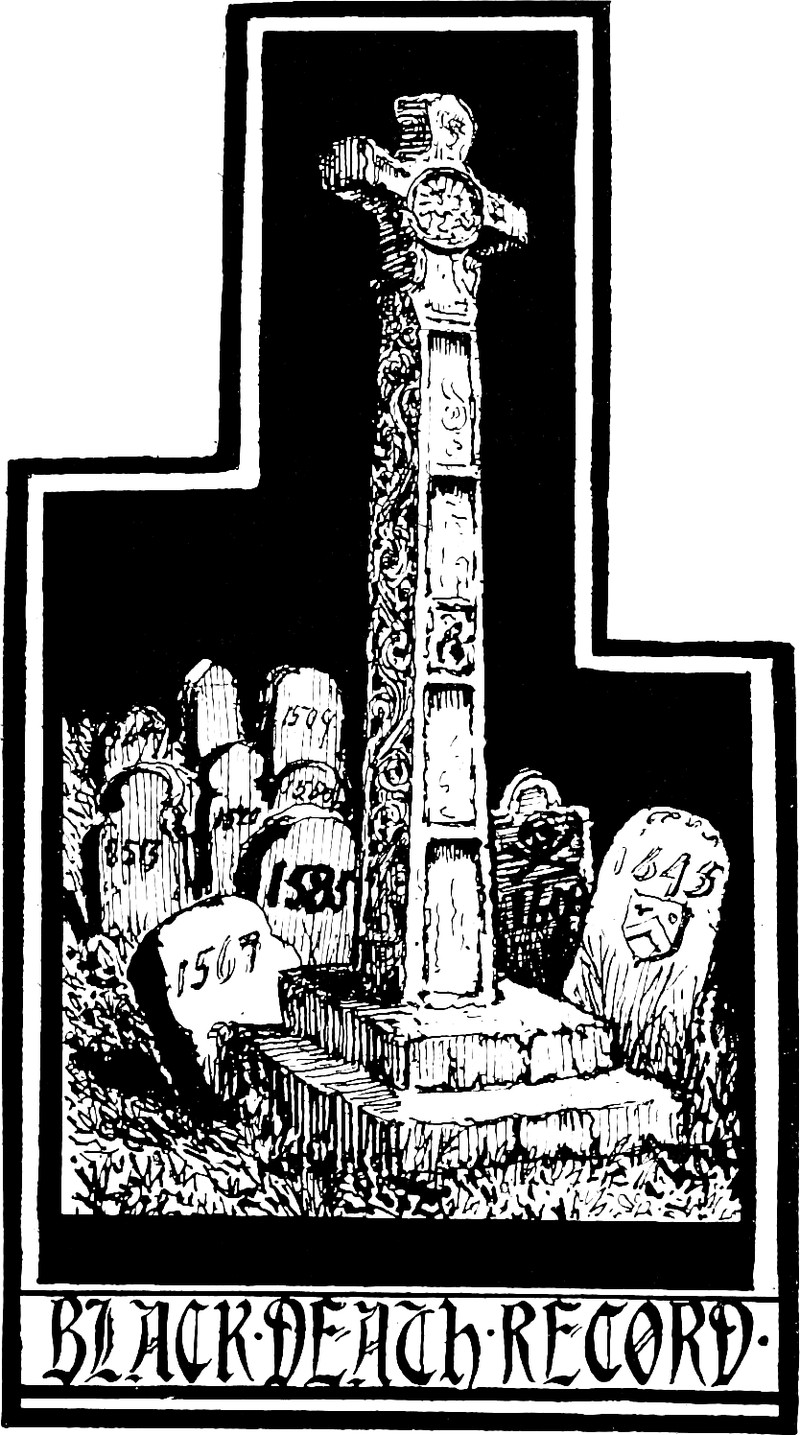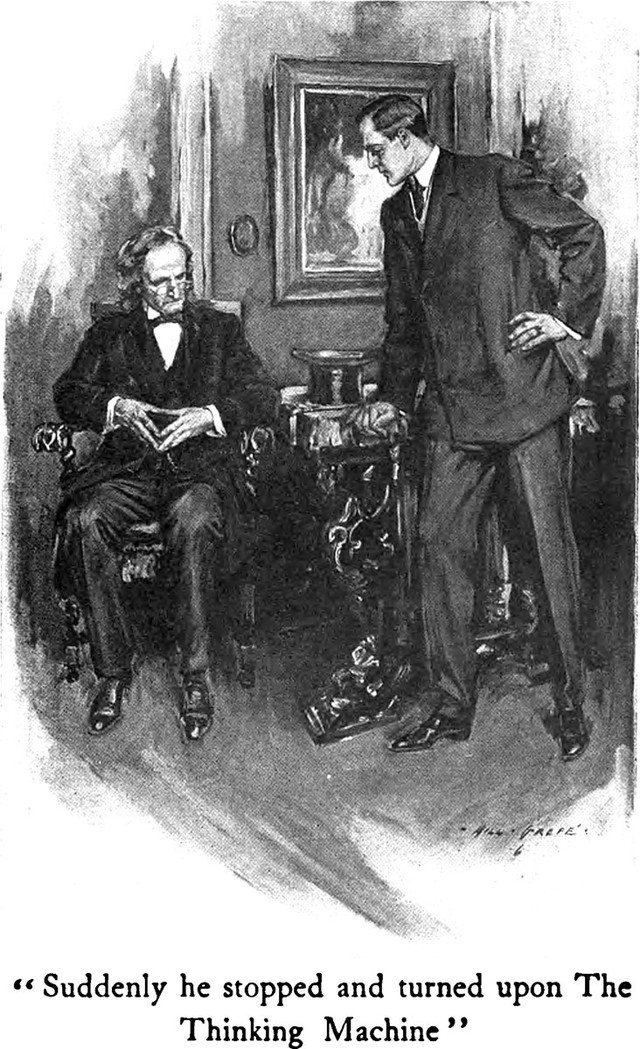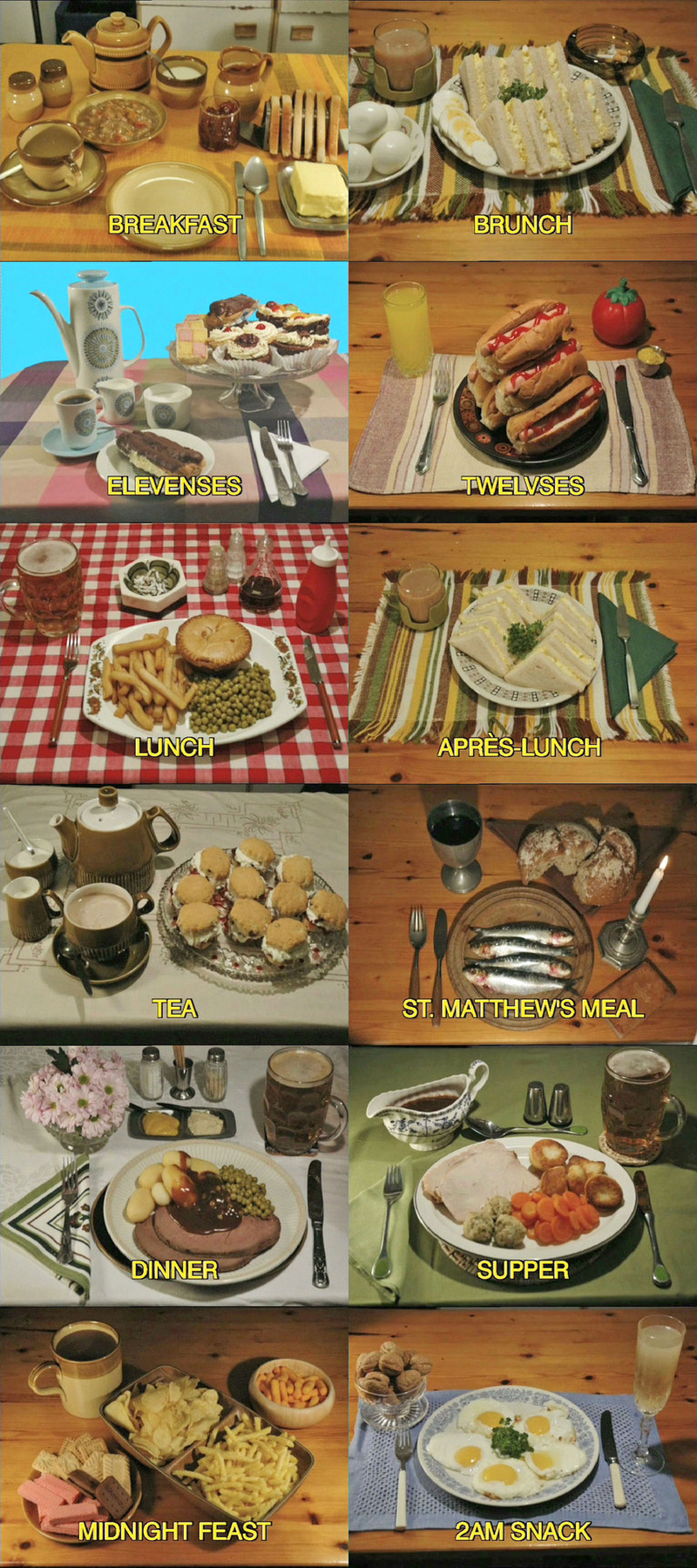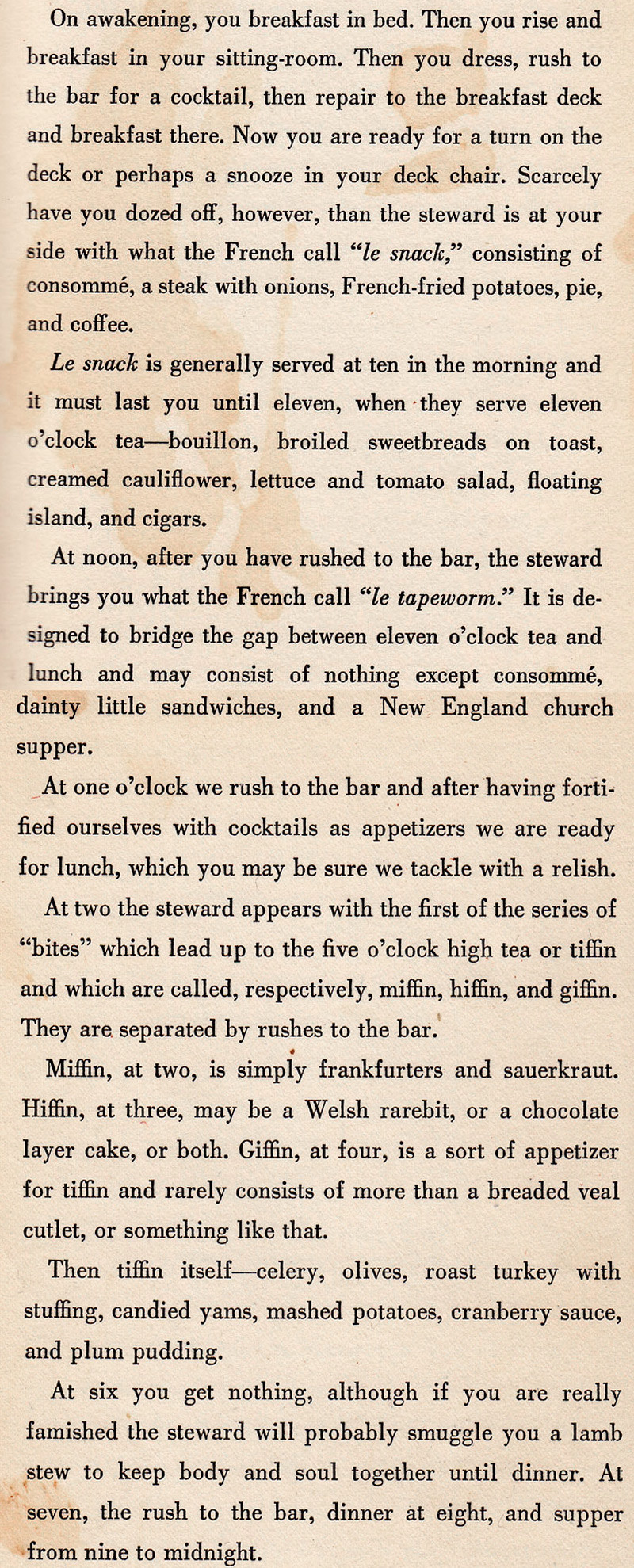
 |
|
|
 |
 |
 |
Here's a precursor to Prof. Henry Higgins and flower girl Eliza Doolittle of Pygmalion (1912), from an advertisement in A Lawful Crime by Edward Kent, 1899. The illustration is by Phil May. |


 |
|
|
 |
 |
 |
Here's what we might call a precursoral opposite. In The Shining (1980), countless variations of the phrase "All work and no play makes Jack a dull boy" cover hundreds of typewritten pages, revealing that Jack Torrance is disturbed. In a 1908 issue of The Windsor Magazine, the blankness of a page reveals that someone is disturbed. The caption reads, "'You have been disturbed!' she cried sorrowfully, as she took in the blankness of the page." |






 |
|
|
 |
 |
 |
Here's a precursor to Edward Albee's title Who's Afraid of Virginia Woolf? (1962), from Frank Sullivan in a 1933 issue of The New Yorker. Sullivan refers to reading a page "to the tune of 'Who's afraid of Virginia Woolf?'"
|



 |
|
|
 |
 |
 |
This bit by Frank Sullivan ...
If [Grandpa] was in a good humor when he awoke, he would take us youngsters up to Dick Canfield's to play games, but as he was never in a good humor when he awoke, we never went to Dick Canfield's to play games.
No family New Year’s get-together was complete without an appearance by Uncle Carlyle. Unfortunately, as there was no one named Carlyle anywhere in the extended family, we had to be content with a slightly incomplete New Year’s. Nevertheless, we had quite a good time.
|

 |
|
|
 |
 |
 |
Edmund Crispin predicted why we just fled from Twitter, seventy years in advance:
"The world in which we live[:] the abominable, sentimental, mob-ruled world of cheap newspapers and cheaper minds, where every imbecile is articulate and every folly tolerated, where the arts are dying out and the intellect is scorned, where every little cheap-jack knows what he likes and what he thinks. Our moralities, our democracy, have taught us to suffer fools gladly, and now we suffer from an overplus of fools." — The Case of the Gilded Fly (1944)
|


 |
|
|
 |
 |
 |
This Nebraska/Ohio bit by Frank Sullivan ...
He made a few simple calculations, as a result of which he pioneered to Nebraska, so that when the next dust storm came up, instead of being blow [sic] from Ohio back to Holcomb Landing, he was blown from Nebraska back to Ohio, where he wanted to be.
I was puzzled to note that there is a place in Nebraska called Town in Ohio, Nebraska. But it turns out there is a simple explanation: it seems they named it after a town in Ohio.
|



 |
|
|
 |
 |
 |
The unshakable Jonathan Caws-Elwitt discovered a precursor to the twelve British meals as depicted in the hilarious series Look Around You (2002). Below are the twelve meals, followed by an account from Frank Sullivan's In One Ear (1933), including the succession of "bites" called tiffin, miffin, hiffin, and giffin. |

 |
|
|
 |
 |
 |
Jonathan Caws-Elwitt shares a precursor from "A Trip to Hollywood," by Frank Sullivan. Cf. Python's famous "I'd like to have an argument, please" sketch.
"I am here to see the sights, and I have read so much in the papers about the famous arguments that you and Mrs. Weissmuller have, that I was hoping to see one before I left." "I'll see if I can fix it," Mr. Weissmuller said pleasantly. . . . "Lupe! Lupe!" [...] "What you want now, John-ee?" she exploded. "Always you call, 'Lupe, Lupe, Lupe.' Why do you not leave me alone?" "This gentleman wanted to see you and me have a little spat." "I am beezy sweeming," stormed Miss Velez. "I have no time to spat wiz you."
|

Page 63 of 70

> Older Entries...

Original Content Copyright © 2025 by Craig Conley. All rights reserved.
|



